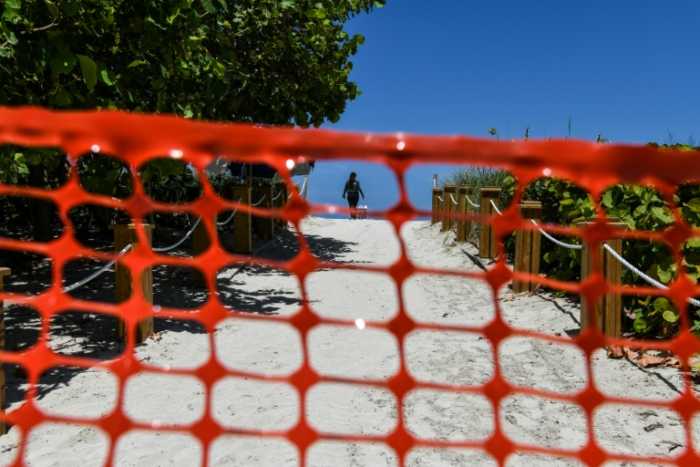
With beaches closed from coast to coast and officials urging Americans to stay home, the somber mood heading into what is usually a weekend of barbecues and sunshine underscored the struggle to extinguish COVID-19 at the epicenter of the global pandemic.
Touching almost every country on Earth since it emerged in China late last year, the coronavirus has infected at least 10.9 million and killed 5,22,000 globally, shattering previously buoyant economies and bringing public life to a standstill.
But while Europe and much of Asia have largely managed to bring the virus under control — so much so that England was preparing to reopen pubs, restaurants and cinemas — in US, it has claimed nearly 1,30,000 lives amid a sharp resurgence of cases which top infectious disease expert Anthony Fauci said “puts the entire country at risk.”
The world’s largest economy broke its record for new cases for the third day in a row Friday, with more than 57,000 infections in 24 hours. It’s expected to record its three millionth infection next week, with cases rising the south and west particularly.
US President Donald Trump — at Mount Rushmore for a fireworks celebration with thousands of attendees in close quarters and masks not required — has so far dismissed the deluge of new cases.
The World Health Organization called on countries hit by serious outbreaks to “wake up” to the realities. “People need to wake up. The data is not lying,” WHO emergencies director Michael Ryan told journalists in Geneva.
Beaches in Los Angeles will also be closed over the weekend, and Major League Baseball officially cancelled its 2020 All-Star Game on Friday, the first time since World War II that the mid-season showcase — which had been set for July 14 — has been scrapped.
The US closures stand in stark contrast to Britain and Europe, once the epicenter of the virus but now restarting businesses and lifting travel restrictions, trying salvage the summer tourist season.
Pubs in England reopen on Saturday for the first time since late March — as restaurants, cinemas, galleries, museums and hotels also prepare to welcome back customers. Travelers arriving into England from more than 50 nations — but not the US or mainland China — will from July 10 no longer be required to undergo 14 days of self-isolation.
The decision follows the European Union, which earlier this week left the US, Brazil and Russia off its final list of nations safe enough to allow their residents to enter its borders.
The European Union meanwhile authorized the use of the anti-viral drug remdesivir for COVID-19 — the first treatment approved to deal with the disease — although the United States has bought most of the global stock.
Europe is also beginning a reckoning on its virus response.
Cases have been skyrocketing across Latin America. The region now has the second most cases in the world with 2.73 million, ahead of Europe on 2.71 million but behind North America.
Brazil, the region’s largest economy, has 1.5 million confirmed cases and 63,000 deaths, second only to the United States.
Nevertheless, popular tourist city Rio de Janeiro authorized bars, restaurants and cafes to reopen at 50 percent capacity, while President Jair Bolsonaro on Friday watered down a law requiring the wearing of face masks in public places.
Cases also continue to surge in the Middle East, where worst-hit Saudi Arabia passed 200,000 infections. Countries across Africa meanwhile forged ahead with plans to reopen, despite steadily rising cases.
In Asia, however, swift lockdowns have largely made progress.
The virus is believed to have emerged at a market that sold live animals in the central city of Wuhan late last year.
